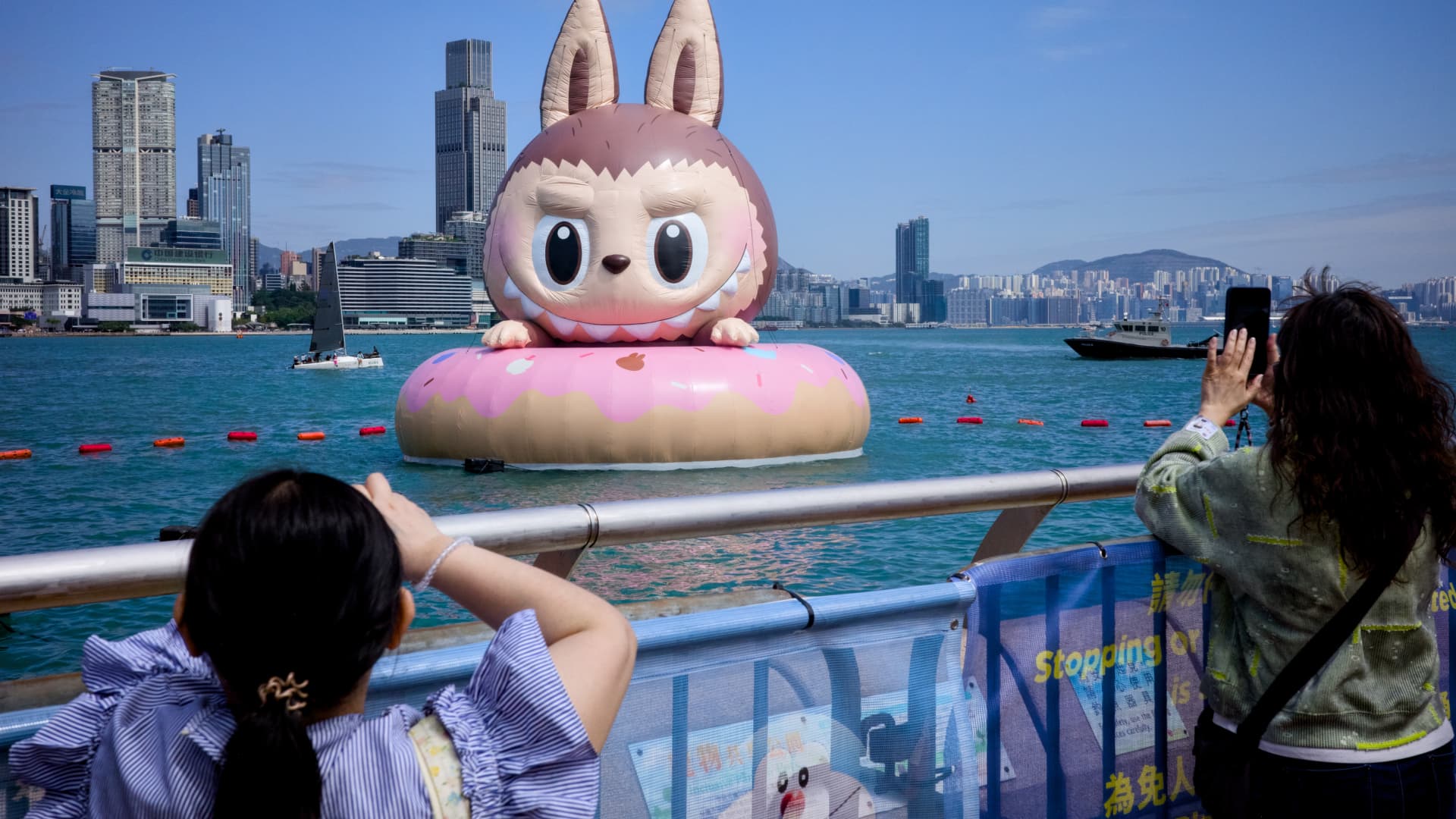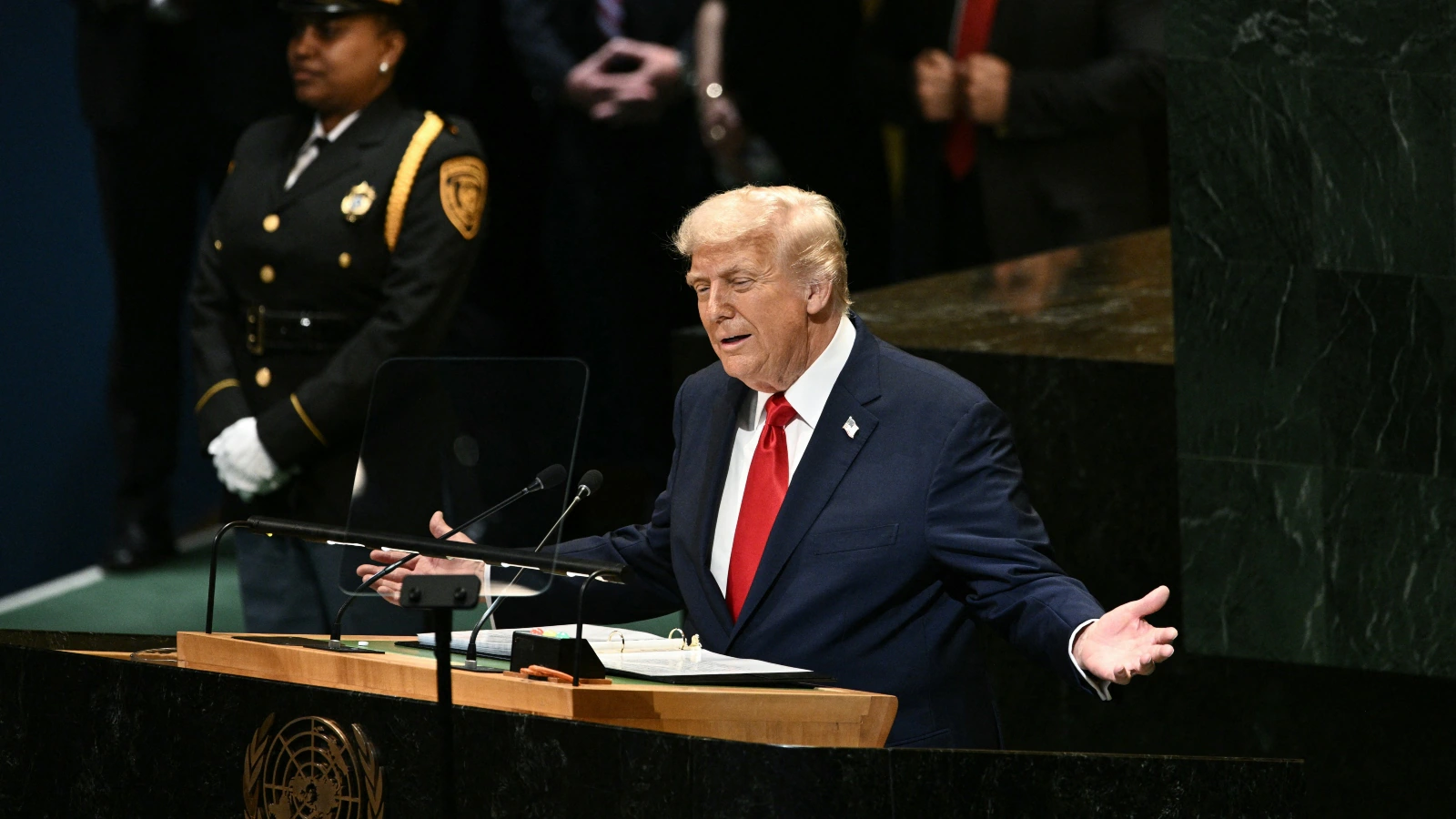Copyright CNBC

Pop Mart's Labubu dolls have captured hearts — and fueled one of China's hottest stock stories, surging more than 270% since the start of the year to hit a high of 339.8 Hong Kong dollars ($43.71) on Aug. 26. But behind the buzz, a sharp divide has emerged between believers in its emotional-branding power and investors wary of chasing another consumer fad. A team of Chinese consumer analysts at Bernstein, led by Melinda Hu, struck a cautious note on Pop Mart last week, pegging an "underperform" rating on the stock with a target price of 225 Hong Kong dollars. Bernstein warned that Pop Mart 's business depends on "trend-driven collectibles," making it prone to sharp swings in demand. The brokerage said the toymaker fits its "speculative waves" category, where companies experience 5- to 10-year boom-and-bust cycles. "Despite sophisticated [intellectual property] development and blind-box mechanics creating an illusion of predictability, the company faces concentration risk, broader structural vulnerability common to fad-driven markets," the analysts said. Hu pointed to Pop Mart's "structural vulnerabilities disguised by Labubu's success," as creating characters of similar blockbuster status and sustaining them have become "exponentially harder," while the existing IPs face growing risks of resale speculation and consumers' sudden fatigue with the single character. "If Labubu fades faster than new franchises scale, the entire growth narrative collapses," Hu said. As enthusiasm for the toothy Labubu plush toy inevitably wanes, Pop Mart faces pressure to diversify its IP portfolio. The company has also launched other characters such as Skullpanda and Crybaby, but neither has matched Labubu's breakout success. Its Hong Kong-listed shares have plunged nearly 30% since their peak in August, reaching 221.4 Hong Kong dollars as of Monday amid profit-taking and concerns about sustaining demand. If Labubu fades faster than new franchises scale, the entire growth narrative collapses. China consumer analyst, Bernstein Melinda Hu How much to pay for emotional value? The company was embroiled in a public relations incident after a Pop Mart employee appeared to question the value of a blind box item during a livestream last Thursday, which went viral, sparking social media backlash over the premium prices of its toys. "We're selling this for 79 yuan? That's absurd," a female staff member said during the livestream, apparently unaware it was being recorded. "People will still buy," a male colleague was heard replying in the video. Social media users piled on, calling Pop Mart's toys overpriced. One comment praised the employee for "telling the truth." Shares slumped by more than 5% on Friday to their lowest level since May, before rebounding 8% on Monday. 9992-HK 6M line Pop Mart International Group In a rare corporate critique, Hu Xijin, a former editor-in-chief of the Communist Party's tabloid Global Times, characterized the livestream controversy in a social media post as a mere "lapse in internal management," while emphasizing the demand for "emotional-care value" provided by Pop Mart. Secondary market The uproar comes as secondary-market prices for Labubu collectibles cool. Data from Chinese resale platform Qiandao shows that some Labubus are being sold close to or below official Pop Mart retail prices, a stark shift after a period of sky-high demand and prices. The average prices for a "Big Into Energy" series Labubu vinyl toy fell from 4,678 yuan in June to less than 600 yuan as of Monday, according to Qiandao. While Bernstein highlighted a downward trend in resale market volume as an "early warning sign" of IP fatigue, many analysts suggested it could be linked to the company's increased supply and monetization efforts. Lina Yan, a consumer analyst at HSBC Bank, acknowledged the company's efforts to restore the "price signal function" — where changes in prices reflect supply and demand dynamics — in the resale market, rather than manipulating prices to achieve higher sales. Yiwan Fan, a college student in Zhejiang, has spent the past two years collecting blind-box toys and recently decided to put her stash up for resale on the Chinese social media app Xiaohongshu, also known as RedNote. "I spent too much money ending up with unwanted duplicates while scalpers easily snapped up the most coveted designs and resold them at inflated prices," she said. Pop Mart has tried to rein in secondhand prices by increasing supply, with a company spokesperson telling CNBC in September that it wants resale values to decrease . The company makes money only from direct sales, not from the secondary market. The recent decline in secondary-market prices for some older series was mainly due to ongoing restocking and waning demand, said Jeff Zhang, an equity analyst at Morningstar. That said, he noted that Pop Mart's new launches continue to sell out instantly while forecasting that overseas markets contribute more to future sales. Zhang recently raised his price target for Pop Mart to 280 Hong Kong dollars, citing stronger revenue projections as the company strengthens its overseas presence through the launch of popular IPs and new products. IP-driven growth However, some analysts are more optimistic than Bernstein, arguing that Pop Mart's IP portfolio remains durable and has room to grow in the near term. Pop Mart is still in the "growth stage" of expanding its IP products globally and could eventually rival top players such as Lego, Sanrio and Jelly Cat, HSBC's Yan said, setting a price target for Pop Mart at 392.5 Hong Kong dollars. While anticipating Pop Mart's sales growth to ease from 2026 onward, Morningstar's Zhang raised his 2025 revenue forecast by 24% to 40 billion yuan — well above management's prior guidance of 30 billion yuan. Pop Mart reported last month that its third-quarter revenue more than tripled year-over-year as sales in America swelled by around 1,270%. First-half revenue also tripled to 13.9 billion yuan . Despite the staggering revenue growth, the shares slumped 8% on Oct. 21 following the latest quarterly announcement. That was primarily due to investors' interests in shorting the stock, which reached "new highs," taking "any strong beat in sales and lower resale market prices as a short signal for the peaking of the Labubu IP cycle," according to Yan.



